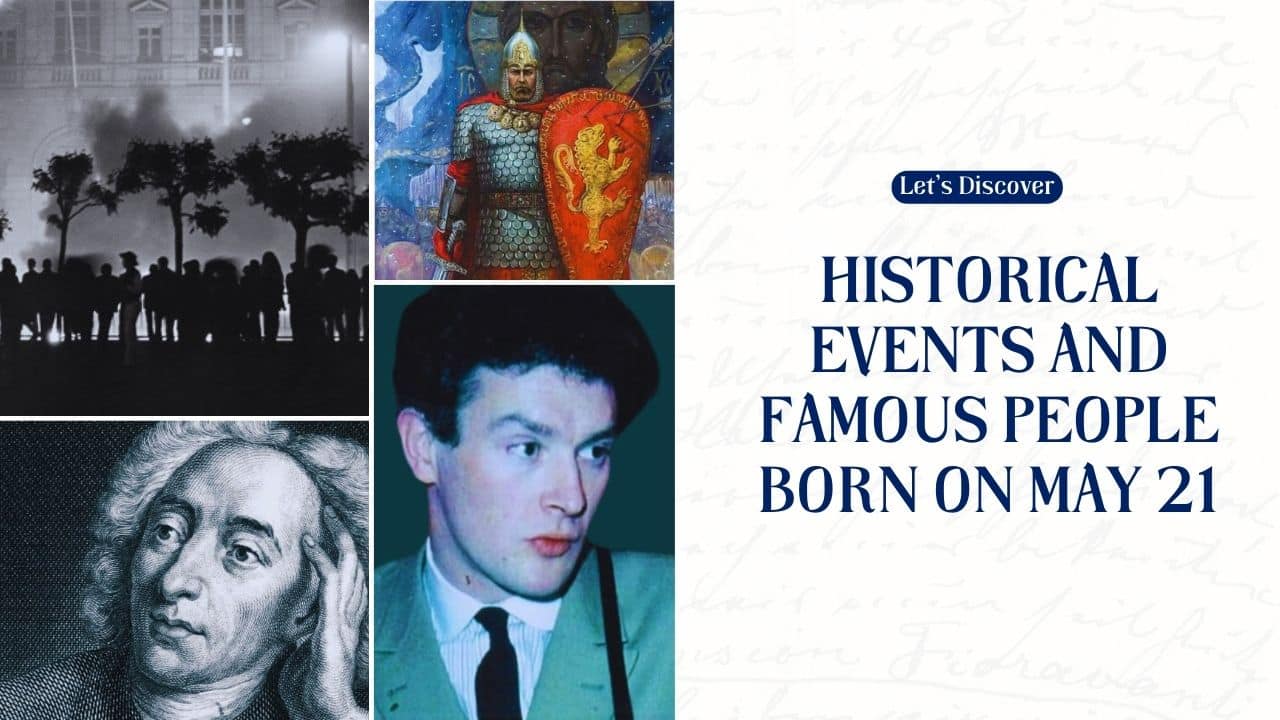July 3 is a day full of important events in history. Many things happened on this day that changed the world. Also, some very famous and important people were born on July 3. In this article, we’ll learn about big battles, important agreements, and the founding of a city. We’ll also meet some interesting people born on this day. Let’s explore why July 3 is such a special day in history!
Historical Events on July 3
Battle of Adrianople (324 CE)
The Battle of Adrianople happened on July 3, 324 CE. It was a big fight between two Roman leaders who both wanted to be the only emperor. On one side was Constantine I, and on the other was Licinius.
Before this battle, the Roman Empire was split into two parts. Constantine ruled the western part, and Licinius ruled the eastern part. But they both wanted to rule everything. This led to a war between them.
The battle took place near the city of Adrianople, which is now called Edirne in modern Turkey. Constantine’s army was stronger and better prepared. They beat Licinius’s army in a tough fight.
After losing the battle, Licinius ran away to Byzantium, a city that later became Constantinople (now Istanbul). But this didn’t save him. Constantine chased him and finally defeated him completely.
This battle was very important. It helped Constantine become the only emperor of the whole Roman Empire. This led to big changes, like making Christianity more accepted in the empire. The Battle of Adrianople was a turning point that shaped the future of Rome and Europe.
Battle of Fariskur (1250)
The Battle of Fariskur happened on July 3, 1250, during a time called the Seventh Crusade. Crusades were big wars fought between Christians from Europe and Muslims in the Middle East.
In this battle, King Louis IX of France was fighting against the Mamluk army led by a commander named Baibars. The Mamluks were powerful warriors who ruled Egypt at that time.
King Louis IX had come to Egypt as part of the Seventh Crusade. He wanted to take control of the Holy Land (the area around Jerusalem). But things didn’t go well for him.
The French army was already weak from fighting and sickness. The Mamluks, who knew the land better, were able to defeat them. In a surprising turn of events, King Louis IX himself was captured by the Mamluk army.
This was a big problem for the French. To free their king, they had to pay a lot of money (called a ransom) to the Mamluks. This was very embarrassing for the powerful King of France.
The capture of King Louis IX at Fariskur was a big blow to the Crusaders. It showed that the Mamluks were very strong. This battle helped end the Seventh Crusade and was an important moment in the long history of the Crusades.
Treaty of Delft (1428)
On July 3, 1428, an important agreement called the Treaty of Delft was signed. This treaty ended a conflict known as the Hook and Cod wars in the County of Holland.
The Hook and Cod wars were a series of wars between two groups in Holland. These groups were fighting over who should rule. The conflict lasted for many years and caused a lot of trouble in the area.
The two main people who signed this treaty were Jacqueline of Bavaria and Philip the Good of Burgundy. Jacqueline was trying to keep her power in Holland, while Philip wanted to take control.
By signing this treaty, they agreed to stop fighting. The treaty said that Philip would become the ruler of Holland, but Jacqueline could keep some of her lands.
This agreement was important because it brought peace to Holland after a long time of fighting. It also meant that the powerful Duchy of Burgundy now had more control in the region. This changed the balance of power in that part of Europe.
Founding of Quebec (1608)
On July 3, 1608, a very important event happened in North America. Samuel de Champlain, a French explorer, founded the city of Quebec. This was a big moment in the history of Canada.
Champlain had been exploring North America for several years. He was looking for a good place to start a French settlement. He chose a spot along the Saint Lawrence River, where the city of Quebec now stands.
The word “Quebec” comes from an Algonquin word meaning “where the river narrows.” Champlain picked this spot because it was easy to defend and good for trade.
At first, Quebec was just a small fort and trading post. But it grew to become one of the most important cities in New France (the name for French territories in North America).
The founding of Quebec was a key moment in the French colonization of North America. It became the capital of New France and played a big role in the exploration of the continent. Today, Quebec City is still an important place, known for its rich history and unique culture.
Washington Surrenders at Fort Necessity (1754)
On July 3, 1754, a young George Washington had to surrender to French forces at a place called Fort Necessity. This happened during a war known as the Seven Years’ War (in North America, it was called the French and Indian War).
At this time, both the British and the French wanted to control the Ohio River Valley. George Washington, who was just 22 years old, was leading a group of British colonial troops.
Washington and his men had built a small fort, which they called Fort Necessity. But the French army, along with their Native American allies, attacked the fort. After a tough battle, Washington realized he couldn’t win. He agreed to surrender to the French.
This was a difficult moment for Washington, but it taught him important lessons about military strategy. These lessons would help him later when he became the leader of the American army during the Revolutionary War.
The surrender at Fort Necessity was one of the early events that led to the bigger Seven Years’ War. This war would change the balance of power in North America and around the world.
Famous Birthdays on July 3
Louis XI of France (1423-1483)
| Fact | Information |
|---|---|
| Born | July 3, 1423 in Bourges, France |
| Died | August 30, 1483 (age 60) |
| Title | King of France |
| Reign | 1461-1483 |
| Nickname | “The Universal Spider” |
| Known for | Strengthening royal power in France |
Louis XI was born on July 3, 1423, in Bourges, France. He became King of France in 1461 and ruled until 1483. Louis XI was known as a clever king who worked hard to make the French monarchy stronger.
During his reign, Louis XI fought against powerful nobles who threatened his rule. He used smart tactics, like making deals and sometimes tricking his enemies. This earned him the nickname “The Universal Spider.”
Louis XI made many changes that helped France become a stronger and more united country. He improved the economy, supported new industries, and made the government work better. He also added important areas to France, making the country bigger and more powerful.
Even though some people didn’t like his tricky ways, Louis XI is remembered as an important king who helped shape France into a strong nation.
Samuel de Champlain (1567-1635)
| Fact | Information |
|---|---|
| Born | About 1567 in Brouage or La Rochelle, France |
| Died | December 25, 1635 (about age 68) |
| Occupation | Explorer, cartographer, colonizer |
| Known for | Founding Quebec City, exploring North America |
| Nickname | “Father of New France” |
Samuel de Champlain was born around 1567 in France. He became a famous explorer and is known as the “Father of New France” because of his work in Canada.
Champlain made several trips to North America. He explored and mapped many areas, including the Great Lakes and the coast of New England. His maps and writings helped Europeans learn more about the New World.
His most famous achievement was founding Quebec City on July 3, 1608. This became the center of French power in North America. Champlain worked hard to build good relationships with Native American tribes, which helped the French in their explorations and trade.
Champlain’s work laid the foundation for French colonization in North America. His explorations and the settlements he started played a big role in shaping the history of Canada.
Leoš Janáček (1854-1928)
| Fact | Information |
|---|---|
| Born | July 3, 1854 in Hukvaldy, Moravia (now Czech Republic) |
| Died | August 12, 1928 (age 74) |
| Occupation | Composer, music theorist, folklorist |
| Known for | Operas and orchestral works |
| Style | Influenced by Moravian and Slovak folk music |
Leoš Janáček was born on July 3, 1854, in what is now the Czech Republic. He became one of the most important Czech composers of the 20th century.
Janáček loved the folk music of his homeland, Moravia. This love influenced the music he wrote. He collected and studied folk songs, which helped him create his unique style of classical music.
He is best known for his operas, like “Jenůfa” and “The Cunning Little Vixen.” These operas often told stories about everyday people and used musical styles that sounded like people talking.
Janáček’s music wasn’t always popular when he was young, but as he got older, more people started to like it. Today, he is seen as a very important composer who helped bring Czech music to the world stage.
Richard Bedford Bennett (1870-1947)
| Fact | Information |
|---|---|
| Born | July 3, 1870 in Hopewell Hill, New Brunswick, Canada |
| Died | June 26, 1947 (age 76) |
| Title | 11th Prime Minister of Canada |
| Political Party | Conservative |
| Term in office | 1930-1935 |
| Known for | Leading Canada during part of the Great Depression |
Richard Bedford Bennett was born on July 3, 1870, in New Brunswick, Canada. He became the Prime Minister of Canada in 1930, at a very difficult time in history.
Bennett led Canada during part of the Great Depression, when many people were poor and didn’t have jobs. He tried to help by starting programs to create jobs and give aid to people who needed it.
As Prime Minister, Bennett also helped create the Bank of Canada and the Canadian Radio Broadcasting Commission (which later became the CBC). These organizations are still important in Canada today.
Bennett’s time as Prime Minister was hard because of the big economic problems. He lost the election in 1935 and later moved to England, where he lived until he died in 1947.
George M. Cohan (1878-1942)
| Fact | Information |
|---|---|
| Born | July 3, 1878 in Providence, Rhode Island, USA |
| Died | November 5, 1942 (age 64) |
| Occupation | Entertainer, playwright, composer, lyricist, actor, producer, dancer |
| Known for | Broadway musicals, patriotic songs |
| Famous works | “Give My Regards to Broadway,” “Over There” |
| Nickname | “The Man Who Owned Broadway” |
George M. Cohan was born on July 3, 1878, in Providence, Rhode Island. He became one of the most important people in American theater in the early 1900s.
Cohan was very talented. He could write plays, compose music, write song lyrics, dance, sing, and act. He used all these skills to create many successful Broadway shows.
He is famous for writing patriotic songs like “Over There” and “You’re a Grand Old Flag.” These songs were very popular, especially during World War I. He also wrote “Give My Regards to Broadway,” which is still famous today.
Cohan helped create the modern American musical. His shows combined catchy songs, energetic dances, and interesting stories. This style became very popular and influenced many other writers and composers.
For his contributions to American culture, especially during wartime, Cohan was awarded a Congressional Gold Medal in 1936, the first person in his profession to receive this honor.
Takeaway
July 3 is a day that has seen many important events in history. From big battles like Adrianople and Fariskur to the founding of Quebec City, this day has shaped the world in many ways. It’s also the birthday of several people who made big contributions to politics, music, and entertainment.
These events and people remind us how interconnected history is. A battle in ancient Rome, a treaty in Holland, and the founding of a city in Canada all played roles in shaping our world today. Similarly, the people born on this day, from kings to composers to entertainers, each left their mark on society in different ways.
By learning about these events and people, we can better understand how our world came to be the way it is. It shows us that history is made up of many different stories and that every day, even July 3, can be full of important moments.
References:
- “The Battle of Adrianople” – Ancient History Encyclopedia
- “The Seventh Crusade” – Encyclopedia Britannica
- “Treaty of Delft” – Historical Dictionary of the Netherlands
- “Samuel de Champlain and the Founding of New France” – Canadian Museum of History
- “The French and Indian War” – National Park Service
- “Louis XI of France” – Biography.com
- “Samuel de Champlain: Father of New France” – Canadiana.ca
- “Leoš Janáček” – Classical Music Encyclopedia
- “R.B. Bennett” – The Canadian Encyclopedia
- “George M. Cohan” – Songwriters Hall of Fame



















































